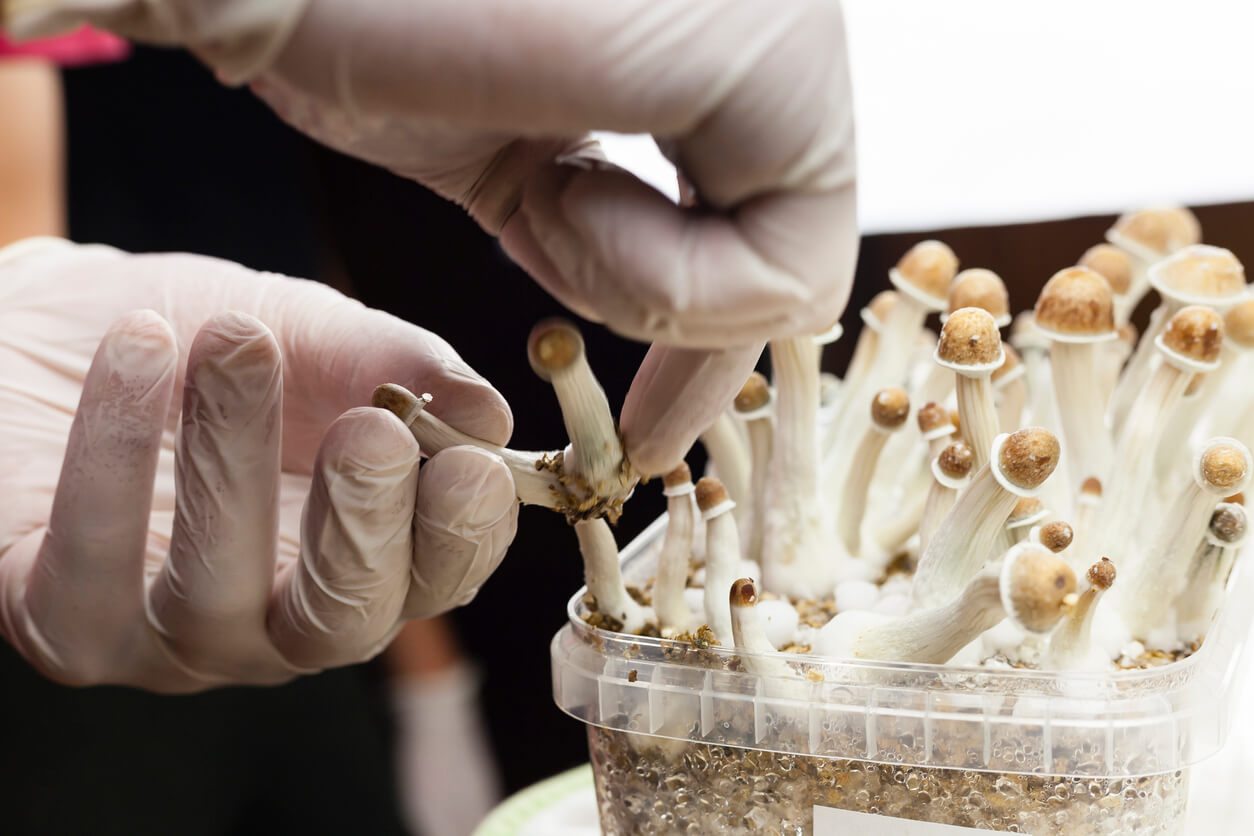With the passage of ballot measures 109 and 110 this November, Oregonians made a national statement toward drug legalization and criminal justice reform by reframing how the state looks at drug policy.
In a pioneering move, Oregon became the first state to legalize the medicinal, therapeutic use of psychedelic mushrooms while also decriminalizing possession of other drugs like heroin and cocaine.
Our Oregon cannabis attorney relays some important points about the new rules that Oregonians need to know.
Oregon Ballot Measures 109 and 110
Ballot measures 109 and 110 were supported nearly statewide and passed across party lines to change Oregon’s approach to illegal drugs.
Backed by the Drug Policy Alliance, the measures aim to decriminalize drug use while treating addiction with rehabilitation rather than incarceration.
An impact statement report issued by the Oregon Criminal Justice Commission anticipates significantly fewer felony and misdemeanor convictions for controlled substances and dramatic reductions in racial and ethnic disparities in both convictions and arrests as a result of these initiatives.
6 Things You Need to Know about Oregon’s Decriminalization of Psychedelic Mushrooms and Street Drugs
While ballot measures 109 and 110 may have successfully passed to decriminalize small amounts of drugs, there are still limits to what is allowed for the use and possession of illicit substances.
Here are six essential things to keep in mind:
- Psychedelic mushrooms, or psilocybin, are still a federally classified Schedule 1 drug despite the changes in Oregon law.
- The distribution of psilocybin will be tightly regulated, allowed only by medical practitioners, and only legalized for use in therapeutic settings.
- Possession of small amounts of drugs is now a Class E Violation resulting in a $100 fine or a completed health assessment through an addiction recovery center.
- Manufacturing and distribution of illegal drugs are still subject to criminal penalties in Oregon and nationwide.
- Possession of drugs in combination with stolen property, weapons, or items associated with drug trafficking, could still result in a felony arrest.
- The reclassification of drug possession under measure 110 is not retroactive for prior convictions.
Addiction Treatment for Drugs in Oregon
Measure 110 offers new support in Oregon’s treatment for drug addiction. Under the measure, cannabis tax revenues will be redirected to address addiction among drug users.
Cannabis tax revenue will be shifted to fund a new state grant dedicated to addiction treatment. Treatment centers will be established across the state, providing continuous health care and support services to drug-addicted people.
Under the Oregon Health Authority, funds may be distributed to pay for related services, including:
- Needle exchange programs
- Housing
- Addiction treatment
- Peer support
- Case management
- Recovery center oversight
Any budget surpluses from reduced arrests and judiciary prosecutions of drug offenses will also be redirected toward treatment programs.
Our Oregon Cannabis Attorney Is Here to Help
Are you confused about precisely what measures 109 and 110 mean to you? Do you wonder what impact they will have in your life and your community?
Attorney Michael Hughes can answer your questions and guide you about when these measures will take effect and what you need to know when they do.
To learn more about Oregon’s decriminalization of psilocybin and other hard drugs in the 2020 election, reach out to an experienced Oregon cannabis attorney today. Contact Attorney Michael R. Hughes today.
